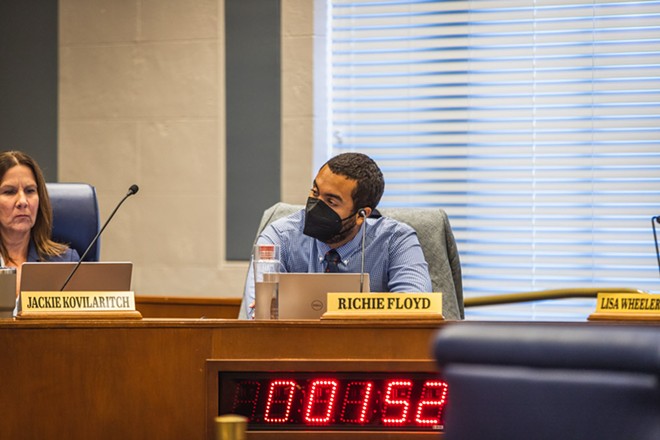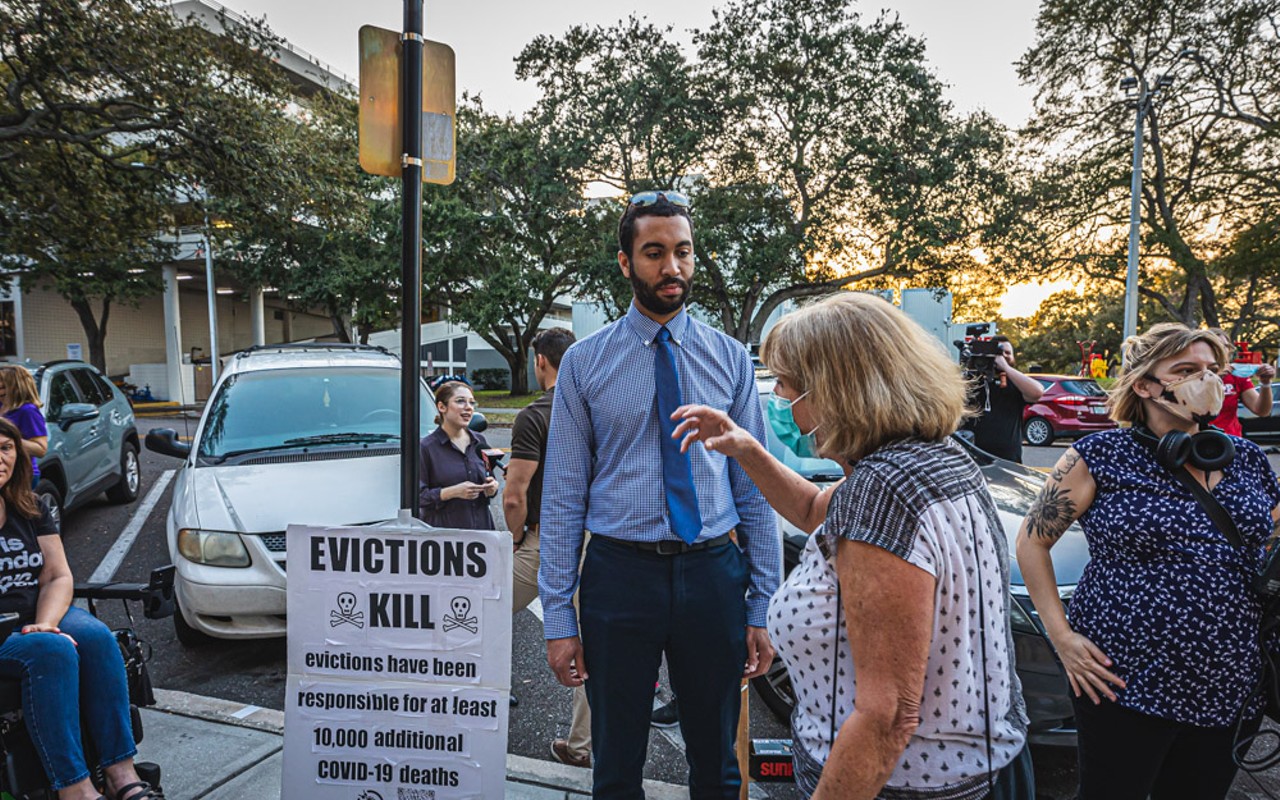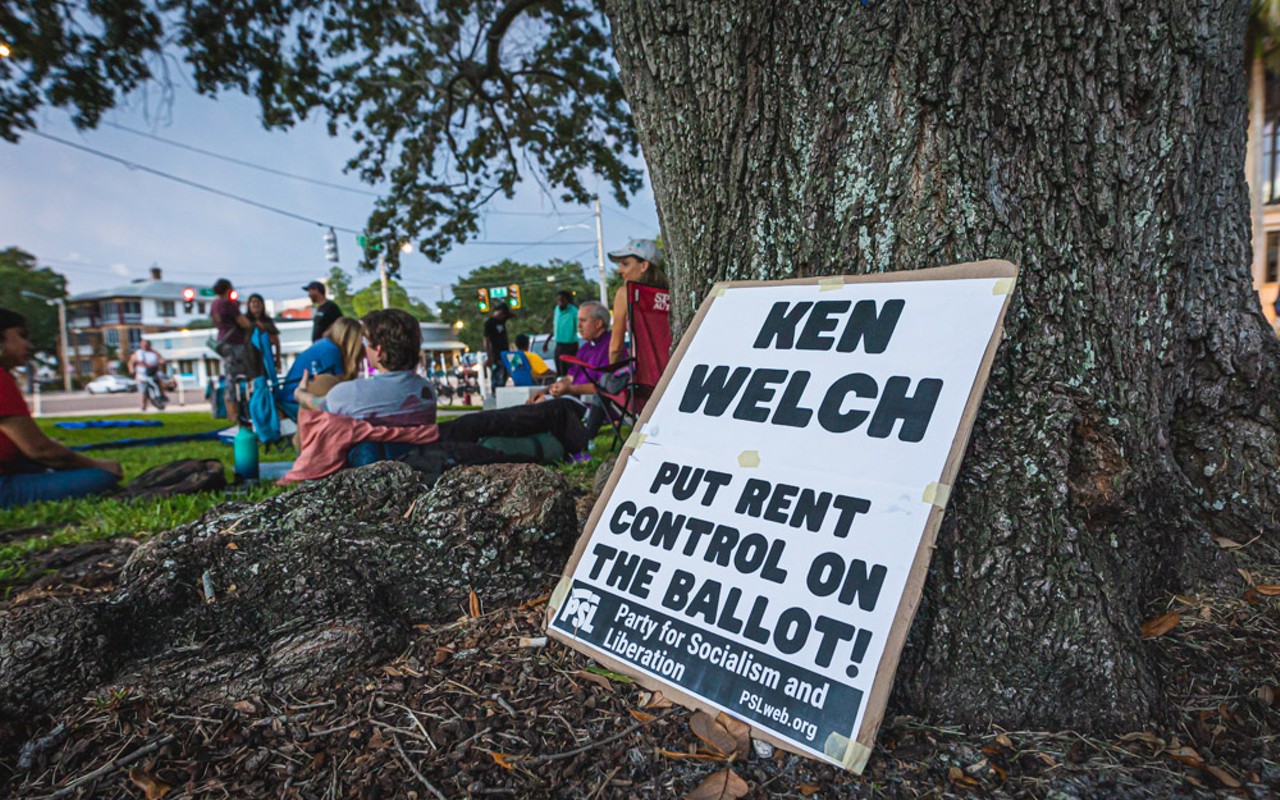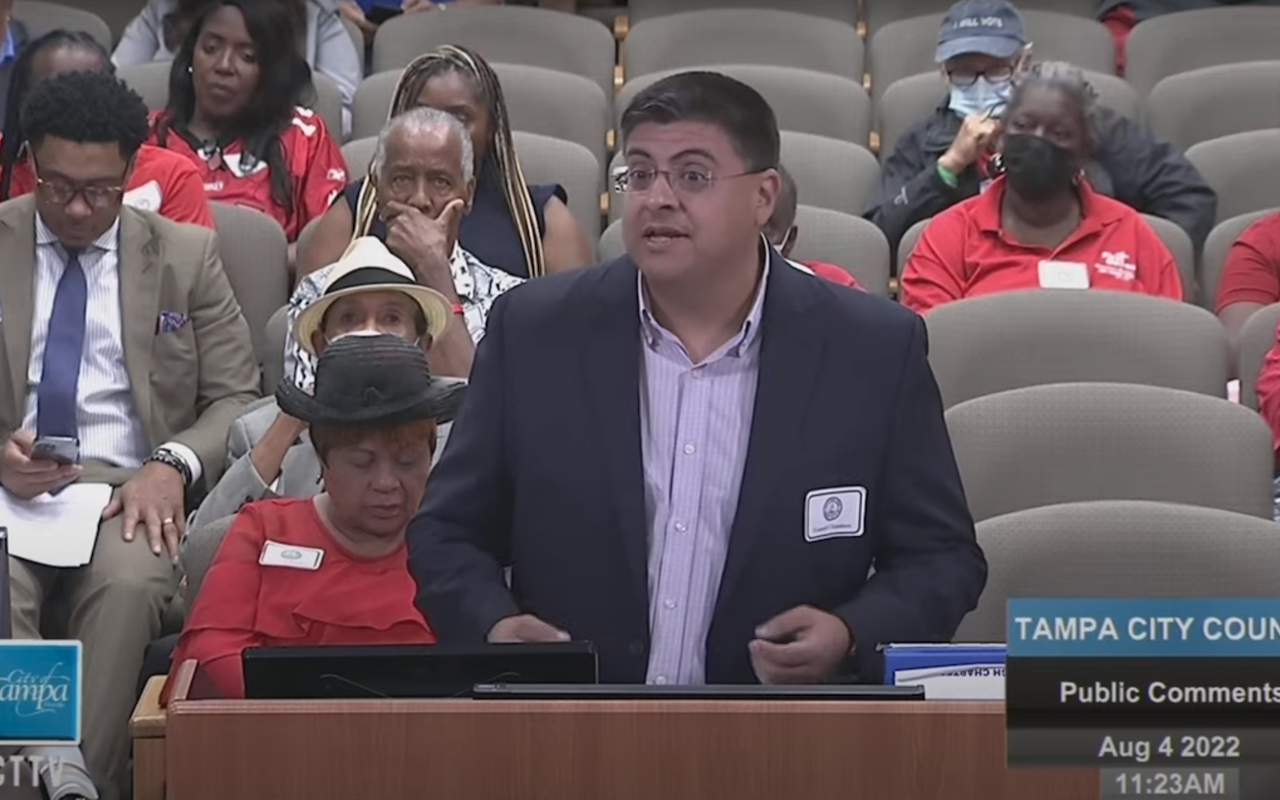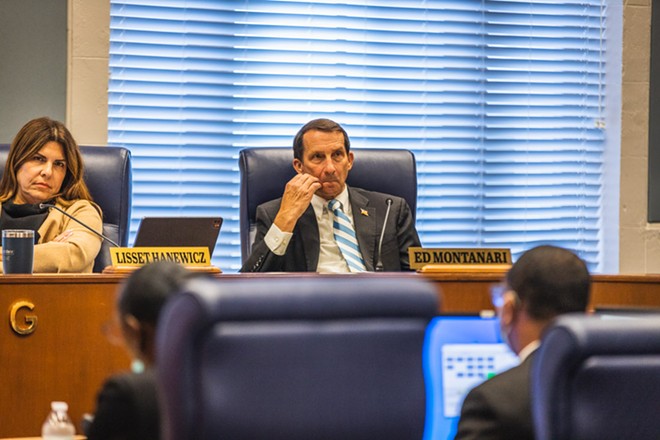“This is something we can do as far as funding eviction aid services,” Bradley Tennant, assistant city attorney said, adding that the program would have to be funded year-to-year and is best done via a council resolution.
Council member Richie Floyd brought the issue to the committee back in April. Thursday was the second meeting on right-to-counsel or RTC, a program that has shown eviction reductions as high as 84% in New York City.
The default rate is when a judge hears the eviction case and votes in favor of the landlord seeking the order, often because the tenant can’t afford legal representation. Floyd estimates that a program in St. Pete could cover 382 to 954 cases in its first year alone, depending on how many people can be reached.
“The financial burden isn’t that high upfront,” Floyd said. “And there are huge payoffs down the line in terms of cost of services saved.”
Amy Foster, former city council member for District 8 (Floyd’s predecessor), is now the community and neighborhood affairs administrator for Mayor Ken Welch. She spoke for the administration and cited support for the initiative, pending funding and data are all in order.
“The administration certainly supports the idea of reducing evictions that lead to homelessness,” Foster said.
Foster currently serves as CEO of the Homeless Leadership Alliance of Pinellas. During her final city council meeting last year, Foster notably passed a motion referring the issue of rent control to the new city council in 2022.
“The more questions we get answered, the closer we are to yes,” Committee chair Deborah Figgs-Sanders said.
Discussion on income requirements for those accessing future services remains under debate.
“Floyd doesn’t want to means test,” Foster said. “The administration doesn’t support assisting high-income individuals.”
Figgs-Sanders agreed. But Floyd, Gerdes, and Wheeler-Bowman don’t think folks facing eviction should have to prove income guidelines to get help.
“I’m not wanting to burden people with paperwork to get into the system to provide income levels when the entire [eviction process] is five days long,” Floyd said. “I don’t want us being scared of some hypothetical rich person deciding they want to use some community law program, it’s not gonna happen...I’m not going to support some cumbersome verification process.”
Income guidelines aside, the program also needs to be funded, and that revenue source remains to be seen. Floyd, city administration, and legal will go back and find possible revenue streams, and wording for the possible resolution. Based on Thursday’s meeting, Foster is applying for the city’s participation in a process called an RTC sprint, where different community leaders are brought together to figure out how to implement RTC. A new city position tracking those facing evictions is in the works, and data is being collected to determine who isn’t able to access existing services due to income or other barriers.
“We can’t fund the whole universe,” Foster said. “We need data to establish that gap.”
It’s been a long few weeks for housing justice advocates in Florida. There were two weeks of sleep-ins outside St. Pete City Hall demanding a vote for rent control. Locals spent hours pleading with and telling their elected officials about the many ways the housing crisis is hurting their lives, only to see St. Pete’s recent bid for rent control fall flat. Tampa failed to advance its own ballot initiative for rent control recently, too. Orange County passed its rent stabilization ballot initiative last week, only to be sued this week by the Florida Apartment Association.
Later, during Thursday’s city council meeting with St. Pete Police Chief Anthony Holloway, council member Ed Montanari wanted answers on how residents were able to protest two weeks in a row by camping outside city hall.
“There were multiple tents in front of City Hall and one person was cited for that,” Montanari said. “Was there a permit request to put those tents there?”
“Through my department, no sir,” Holloway said.
Allendale United Methodist Rev. Andy Oliver was the one citation.
“Tell me about the law, if sidewalks are being blocked and there’s no permit and the police come and see that, are the tents supposed to be removed?” Montanari said.
“Yes sir, when I was here the sidewalk was not blocked,” Holloway said. “We could only cite one person because he said the tents belonged to him. I made the decision to have tents removed first thing in the morning.”
“So the sidewalks weren’t blocked?” Montanari asked. “Are they allowed to have a tent on the sidewalk?”
“No sir,” Holloway said. “That was my discretion.”
“We had a lot of speakers the next day that said they stayed in their tent all night,” Montanari said.
“We can guarantee that won’t happen again,” Holloway said.

